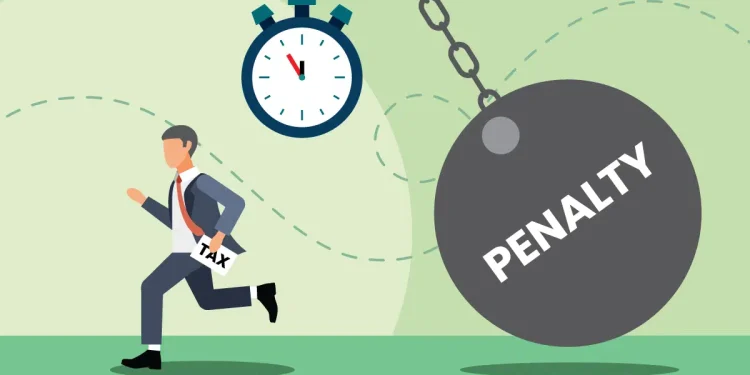Penalty under section 270A immunity u/s 270AA of Income Tax Act - Practical Issues

The legislature changed the entire law on penalty by shifting the defaults of ‘concealment or furnishing inaccurate particulars of income’ u/s 271(1)(c) of the Income tax Act, 1961 (Act) to new defaults of ‘Underreporting or Misreporting of the Income’ u/s 270A of the Act for the assessment year beginning on or after 01/04/2017 i.e. for the AY 2017-18 & Onwards.
Recently, the scrutiny assessments for the AY 2017-18 has been completed and based on that the Author has focused on the practical issues related to the implementation of these new provisions. Further, the Author has also focused on the practical issues related to the provisions of the immunity u/s 270AA of the Act. In the article, the author has not dwelled into the detailed discussion of the provisions of the Section 270A of the Act.
1. Whether it is mandatory on part of the AO to state that under which limb the penalty for the misreporting of income has been initiated?
Section 270A (8) is non obstante provision which provides that where under-reported income is in consequence of any misreporting thereof by any person, then the penalty shall be equal to 200% of the amount of tax payable on under-reported. Section 270A(9) provides the list of cases of misreporting of the income, which are;
(a) misrepresentation or suppression of facts;
(b) failure to record investments in the books of account;
(c) claim of expenditure not substantiated by any evidence;
(d) recording of any false entry in the books of account;
(e) failure to record any receipt in books of account having a bearing on total income; and
(f) failure to report any international transaction or any transaction deemed to be an international transaction or any specified domestic transaction, to which the provisions of Chapter X apply.
The above list is exclusive one and if the case of the assessee is not falling in the above-stated cases, then the AO cannot impose the penalty on account of misreporting of the income.
In many assessment orders passed recently, it has been observed that the AO has not stated that under which limb the penalty in consequence of any misreporting of income has been initiated. As a part of principal of natural justice, it is mandatory on part of the AO to state that under such limb, the penalty in consequence of any misreporting of income has been initiated. Therefore, if the AO has not specified that under which limb the penalty in consequence of any misreporting of income has been initiated, then the assessee must raise this ground during the course of penalty proceedings as well as during the course of appellant proceedings and going ahead, we’ll find many judgments of various forum on this count.
2. Whether the assessee can file an application for immunity application before the AO u/s 270AA(1) of the Act and simultaneously, can he also file the appeal?
Before going ahead, let me draw one hypothetical case of which order was passed u/s 143(3) by making various additions;
|
Sr. No. |
Addition on account of |
Amount |
Penalty Imposed on account of |
|
1 |
Disallowance of expenses u/s 14A of the Act |
XX |
Under Reporting of Income |
|
2 |
Unaccounted Sales |
XX |
Misreporting of Income |
Section 270AA(1) provides that the An assessee may make an application to the AO to grant immunity from imposition of penalty under section 270A and initiation of proceedings under section 276C or section 276CC, if he fulfils the following conditions, namely
(a) the tax and interest payable as per the order of assessment or reassessment under sub-section (3) of section 143 or section 147, as the case may be, has been paid within the period specified in such notice of demand; and
(b) no appeal against the order referred to in clause (a) has been filed
Further, Section 270AA(3) provides that the AO shall, subject to fulfilment of the conditions specified above and after the expiry of the period of filing the appeal as specified in 249(2)(b), grant immunity from imposition of penalty under section 270A and initiation of proceedings under section 276C or section 276CC, where the proceedings for penalty under section 270A has not been initiated under the circumstances referred to in sub-section (9) of the said section 270A.
Therefore, in case if the penalty has been initiated on account of Under Reporting of Income, then the AO, upon fulfilment of above both conditions, shall grant an immunity from the penalty as well as from the prosecution.
Now, considering the above scenario, whether the assessee can simultaneously file an;
(a) application for granting an immunity u/s 270AA against the first addition i.e. addition made on account Disallowance of expenses u/s 14A of the Act? and
(b) appeal against the second addition i.e. Unaccounted Sales?
The second condition of the 270AA is clear – it provides that the “no appeal against the order referred to in clause (a) has been filed”. Therefore, the precondition for making an application u/s 270AA(1) provides that the assessee has not disputed the order as whole and has paid all taxes as per assessment order. The similar language is also found in the section 264 of the Act and it is settled position of law that the said section affirms full merger.
However, intention of the legislatures behind the introduction of new regime of the penalty is to create less litigation environment. This fact is apparent from the Budget Speech of the Hon’ble Finance Minister and the relevant extract thereof is reproduced hereunder;
- Levy of heavy penalty for concealment of income has over the years resulted in large number of disputes despite a number of decisions of the Apex court on interpretation of statutory provisions and principles guiding imposition of penalty. At present the Income-tax Officer has discretion to levy penalty at the rate of 100% to 300% of tax sought to be evaded. I propose to modify the entire scheme of penalty by providing different categories of misdemeanor with graded penalty and thereby substantially reducing the discretionary power of the tax officers. The penalty rates will now be 50% of tax in case of underreporting of income and 200% of tax where there is misreporting of facts. Remission of penalty is also proposed in certain circumstances where taxes are paid and appeal is not filed.
In view of the above, even though the wordings of the preconditions to make an application for immunity are clear – which affirm full merger of the assessment order, however, we’ll find various litigation on that issue. Hope, the department may also clear its position by issuing suitable circular in this regard.
3. Whether the late filing of the application for granting an immunity is permisible?
It might be possible that the assessee had paid full demand within time specified in the demand notice or the tax has been adjusted against the refund due and the assessee is also not wanting to agitate the matter before the appellant authorities but the assessee, forget to file the application for immunity u/s 270AA(1) of the Act in Form 68 within the time specified therein.
The section 270AA(2) specifically provides that the application referred to in sub-section (1) shall be made within one month from the end of the month in which the order referred to in clause (a) of sub-section (1) has been received and shall be made in such form and verified in such manner as may be prescribed. The legislature has used word shall, therefore, as per the provisions, the application must be filed within the specified time.
However, looking to the intention behind the introduction this new penalty regime, as discussed supra, we’ll find numerous of case laws on this issue in future. Further, department might issue circular to clarify its position on this matter.
4. Whether the application for granting an immunity from the penalty and prosecution u/s 270AA of the Act in form 68 can filed in case if the penalty has been initiated on account of misreporting of the income?
In nutshell, the answer is yes and the same is explained as under;
|
Provision |
Analysis |
|
Section 270AA(1) provides that “An assessee may make an application to the Assessing Officer to grant immunity from imposition of penalty under section 270A and initiation of proceedings under section 276C or section 276CC, if he fulfils the following condition…” |
Section 270AA(1) entitle the assessee to file an application before the AO to grant immunity from the imposition of penalty under section 270A. Consequently, this section provides that the application for immunity can be filed irrespective of fact that whether the penalty has been initiated on account of under-reporting of income or misreporting of income. |
|
Section 270AA(3) provides that The Assessing Officer shall, subject to fulfilment of the conditions specified in sub-section (1) and after the expiry of the period of filing the appeal as specified in clause (b) of sub-section (2) of section 249, grant immunity from imposition of penalty under section 270A and initiation of proceedings under section 276C or section 276CC, where the proceedings for penalty under section 270A has not been initiated under the circumstances referred to in sub-section (9) of the said section 270A. |
This provision snatches away the discretionary power of the AO and mandate that if the penalty has been initiated on account of under-reporting of income and the preconditions to make an immunity application has been fulfilled, it is mandatory on the part of the AO to grant an immunity. However, the hidden language of this provisions is that in case, if the penalty has been initiated on account of under-reporting of income in consequence of misreporting, then the AO may his own discretion, grant an immunity. |
|
Section 270AA(4) provides that the Assessing Officer shall, within a period of one month from the end of the month in which the application under sub-section (1) is received, pass an order accepting or rejecting such application: |
This provision provides that the Order accepting or rejecting the application of the assessee shall be passed by the AO within the period of one month from the end of the month in which the application is received. Therefore, the combined reading of subsection 1 and subsection 4 provides that that assessee can make an application under section 270AA for requesting to granting an immunity from penalty Initiated in consequence of misreporting of income. However, in such cases, the AO may his own discretion either may accept or reject the application. |
5. Whether the assessee can file an application u/s 273A of the Act before the Pr. CIT if the application of the assessee has been rejected by the AO u/s 270AA?
The answer is Yes. The assessee can still put an application before the Pr. CIT u/s 273A of the Act to reduce or waive penalty, etc. even if his application to grant immunity u/s 270AA(1) has been rejected by the AO. In fact, section 273A also contains the reference of section 270A.
6. In the case of misreporting of income, whether the AO have the powers to reduce penalty percentage under Section 270AA?
The answer is No. Section 270AA clearly provides that The AO shall, within a period of one month from the end of the month in which the application under sub-section (1) is received, pass an order
- accepting or
- rejecting such application
Entire section 270AA of the Act does not empower the AO to reduce the penalty in the case of misreporting of the Income. Therefore, the AO shall either accept an application or reject an application.
Conclusion
We, the taxpayers and tax professionals, must welcome this less litigation step of our Legislatures. Every new law requires time to get mature for smooth implementation and till that, it is our duty to draw the interpretation of these new provisions in accordance with their intention and purpose behind the introduction.











